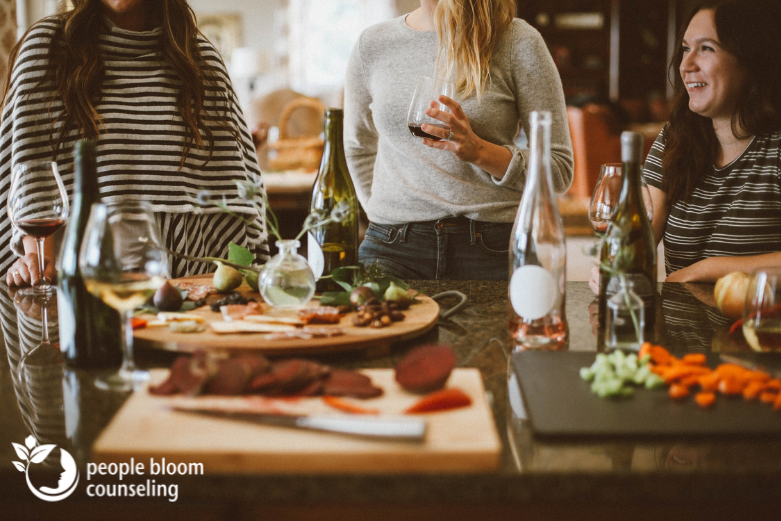Photo by Clarisse Meyer on Unsplash
There’s so much advice and guidance out there on how to heal from break ups. If you just broke up with your honey, Cosmo gives you full permission to have a good cry, bust out bonbons, put on a Rom Com and stay in bed all week. But there’s very little in the self-help world about what to do when platonic friends go separate ways.
We’ve all been there - and it feels weird and confusing.
Why we hang on
Sometimes we hang on to friendships because we don’t know any better. We do it because the friendship is comfortable and it’s scary to walk away.Other times we hang on to friends because of fear that we’ll hurt their feelings if we leave their side. Still other times, we cling because it’s what we know, and it's hard to imagine our life without the person we were once close to.
Why we break up
Even if you had amazing times with a friend in the past, it doesn’t mean that connection was meant to last forever. As we get older, we often change so much that we’re no longer compatible with old friends. Or maybe you’ve stayed the same, but your friend’s interests and values have shifted, or vice versa. Sometimes our life circumstances change. There are countless reasons for going separate ways, and all are valid.
Not all friendships are meant to persist. With age we learn to distinguish between friendships that we should fight to keep, and those we should release. If you tune into what fills your cup, you know deep down what’s best for you.
Whether you have a conversation about breaking up or the friendship dissipates on its own, it can be uncomfortable. Telling someone you can’t be their friend feels harsh, even if your words are true. Ghosting feels flakey and lacks heart.
However you go about ending a friendship, it’s ok to free yourself of the guilt you feel. Keeping a friendship that no longer works for you can feel disingenuous. It is likely taking up spoons that you can use elsewhere. When you let go of a friendship, you’re setting boundaries and doing what’s best for you.
When a friend lets us go
Sometimes we’re the ones hanging on to the past. In this case, you and your bygone friend aren’t on the same page - you want to fight for a friendship, but you see signs that your friend doesn’t reciprocate this feeling. If you were once close, this can feel as painful as a romantic break-up, and no one ever prepared us for this scenario.
The comfort I want to offer is this: know that parting ways with friends we once loved is common and normal. Friendship goes through seasons and sometimes, these relationships wither and don’t make it to that next season. Mourn the friendship by remembering the good things, and then honor your friend’s choice to let you go.
And it’s also ok if it takes time to accept. When you have to say goodbye to friendships that mattered at one point, it makes sense that it would hurt. There’s no manual for how to do it right, or how to heal So, take your time getting over this breakup like you would a relationship breakup. Significant friendships were once intimate after all.
Finding your own closure
Because the end of a friendship is usually muddled in a grey area and doesn’t always get the closure that some romantic partnerships do, you may have to say your goodbyes on your own. You can do this in a journal, in your thoughts and prayers, or in conversations with people you trust. Honor these past friends by acknowledging the good things they brought to your life in the season you had together. There was a time when it served you both well. It wasn’t all for nothing but it’s also time to move on.
Friendship breakups can be disorienting - but they are part of being social creatures, and I’m certain they’re the topic of many therapy sessions. If you need extra support, our therapists can guide you through this change in season, and help you see that your life can be whole, even as friends come and go
Let us know if we can help!
Karen Lenz is the Office Whiz and Insurance Guru at People Bloom Counseling. She writes blog posts as a human navigating this world, a client sitting across from a therapist, much like you. She has noticed that old friends from past lives coming out of the woodwork during the pandemic and decided to share some reflections on those that have gone their own way.








